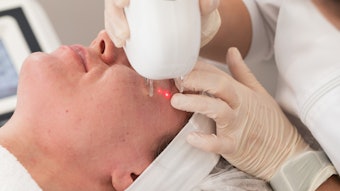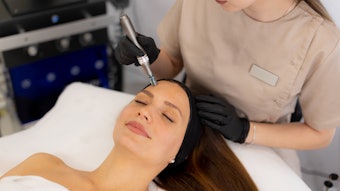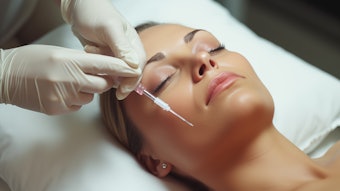A physician’s endorsement of a skin care line has clout, but ultimately it is up to estheticians to use their own judgment.
Today’s multibillion-dollar cosmetics industry experienced a major evolution during the 20th century when three trailblazing women became beauty experts and introduced their products to enthusiastic female consumers. Elizabeth Arden opened her first salon in 1910, Helena Rubenstein brought her products to the United States in 1912 and Estée Lauder sold her skin creams to a department store for the first time in 1948. What began with innovators in the cosmetic industry grew to involve highly specialized physicians inspiring the beauty industry.
The current trend of physician-endorsed cosmeceutical product lines includes doctors’ namesake lines that either have been developed on their own or in conjunction with a cosmetic company, created for an established brand or with a successful retail company, such as a drugstore chain. Famous brand companies are actively interested in investing their capital to launch product lines partnering with notable physicians.
Skin doctors: The traditional role
In the past, doctors’ sole income came from the medical services and procedures they provided to their patients. With their medical reimbursements drastically reduced and certain services no longer covered, physicians have the incentive to search for alternative sources of income. Most recently, dermatologists have become fascinated with the anti-aging trend, and have expanded their practices to include cosmetic and surgical treatments. Out of necessity, they became well versed in pharmaceutical preparations to treat the vast array of skin conditions presented to them. Treated conditions include acne, psoriasis, eczema and, more recently, the treatment of the visible signs of aging, such as brown spots, red spots, broken capillaries, and fine lines and wrinkles.
Plastic surgeons also have begun to deal with esthetic treatment programs to further assist their patients. They have found that their goal to improve the appearance through facelifts and brow lifts, for example, is not enough. Although the wrinkles may be gone, the plastic surgeon’s surgical results will look better, further satisfying the patient, if the skin’s texture, elasticity and overall appearance show significant improvement.
The medical advantage
Physicians have access to the latest information on ingredients, technology and the efficacy of both. Due to their medical training and license, they have the ability to use higher concentrations of ingredients. Doctors’ practices allow them to have direct access to consumers on a daily basis through their patients. This provides them with instantaneous feedback that major companies often spend millions of dollars on market research to receive. Following the lead of their patients, physicians believe that they can provide them with the products that they want and have them conveniently available in their offices.
The pioneering physician
When Norman Orentreich, MD, started seeing patients in his own practice in the 1950s for conditions such as eczema, acne and dandruff, he realized that what he wanted to prescribe wasn’t available. Orentreich also was concerned that his patients might not fill the prescriptions that he prescribed, or that the pharmacists would inaccurately compound the products he wanted. He decided to form The Orentreich Medical Group with pharmacist Abe Rubin and an innovative cosmetic chemist, George Feebler, to monitor the products they developed for their patients and tweak them as necessary. According to spokesperson Anna-Sophia Leone, following their patients’ care enabled the physicians to see any results from the prescribed regimens. Product modification could include changing the percentage of an active ingredient in a compound.
In the early to mid-1960s, there were more companies that focused on color cosmetics and perfume rather than skin care products. Leonard Lauder, chairman of The Estée Lauder Companies, Inc., believed that the time was right for a skin care line. He charged Carol Phillips, beauty editor of Vogue at the time, to start a new company with a completely different approach. Phillips enlisted Orentreich for the task, and they created a three-step system that delivered basic skin care to consumers with multiple skin types. The rest, of course, is history; today the line is known as Clinique. David Orentreich, MD, who has since followed in his father’s footsteps, says that “the goal is to sell dreams in skin care, but not to promise anything that we can’t deliver or that doesn’t perform.” This certainly explains the cosmetic companies’ continued and increased intrigue in what physicians can offer, as well as accounts for the basis of the lucrative relationships that are being conceived today.
Celebrity doctors
The next dermatologist to gain notoriety for a namesake line was Howard Murad, MD, who founded his company in 1989 and opened a medically supervised day spa. Murad began by using alpha hydroxy acids in professional products. Today, he is the proud owner of 16 patents and is a major authority on skin care.
Tina Alster, MD, director of The Washington Institute of Dermatologic Laser Surgery, is the dermatologic consultant for Lancôme, a division of L’Oréal. Alster is featured prominently in prime advertising space in top fashion and beauty magazines as an expert, model and spokesperson for Lancôme. In addition to being glamorized in this beauty industry role, she is one of the most noted laser surgeons in the country.
With his anti-aging program that focuses on diet, nutritional supplements and topicals, Nicholas Perricone, MD, also has achieved celebrity status. Recently, he was featured on the cover of The New York Times Magazine in an article titled “Perriconology.” He also is the author of three New York Times No. 1 bestsellers and is a frequent guest on national television shows such as The Oprah Winfrey Show.
The academicians
A most fascinating trend is the interest that well-known beauty and retail companies have in wanting to be associated with physicians who have clout in the medical community and prestigious academic affiliations.
Jeffrey Dover, MD, director of Skin Care Physicians in Boston, is associate clinical professor of dermatology at Yale University School of Medicine and adjunct professor of medicine (dermatology) at Dartmouth Medical School. He was approached by CVS Corp. to develop and market his own product line that now is distributed in 5,000 drugstores. Dover was involved in the project from its inception, selecting the original nine products and working with two groups of pharmaceutical chemists to determine the chemical content of the products. He also was instrumental in choosing the scent, packaging, labeling and colors utilized. CVS and Dover used outside focus groups for their research, but the major benefit was the physician’s ability to test these products on his own patients. This gave Dover a direct line to consumers and instantaneous public opinion.
Other company affiliations with physicians with impressive academic appointments include Katie Rodan, MD, adjunct clinical assistant professor of dermatology at Stanford University School of Medicine, whose company, Rodan+Fields, was acquired by The Estée Lauder Companies, Inc.; Patricia Wexler, MD, associate clinical professor for the Mount Sinai School of Medicine, who works in affiliation with Limited’s Bath and Body Division; and Neil Sadick, MD, clinical professor of dermatology at The Weil Medical College of Cornell University, who recently was named global medical director of Dior/LVMH.
The esthetician’s decision
One of the challenges of being an esthetician is becoming an expert on products and ingredients, and navigating through this massive product marketplace. The key to success is to thoughtfully determine the products that are most suitable for your facility and clients. The category of high-end medical professional brands will become more crowded as physicians pursue business opportunities in this arena, and, in turn, this will create more complicated decisions for estheticians. A physician’s endorsement of a skin care line does have clout and certainly impacts the consumer’s decision-making process; a doctor creating the line personally may similarly impact the choice of an esthetician. Ultimately, it is up to estheticians to use their own judgment and product selection criteria to ensure the success of their retail sales.










